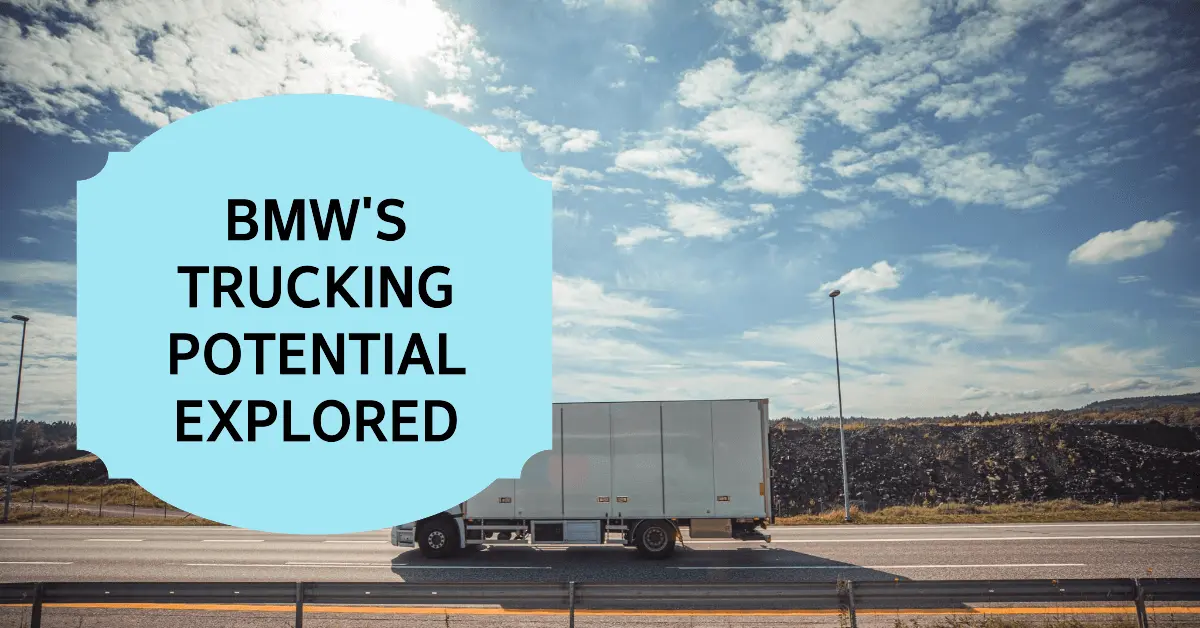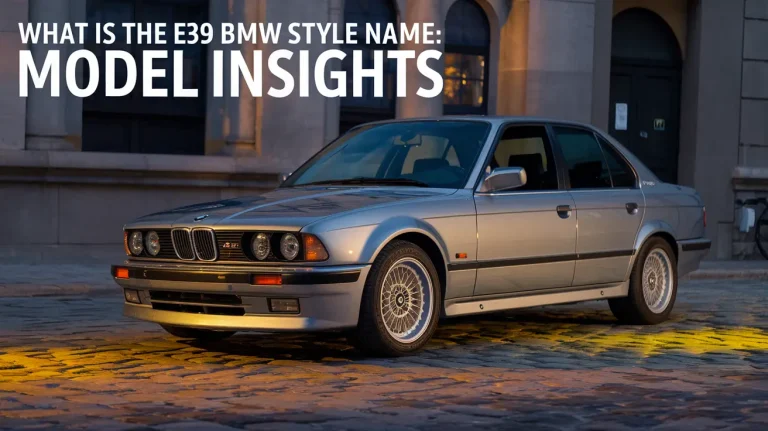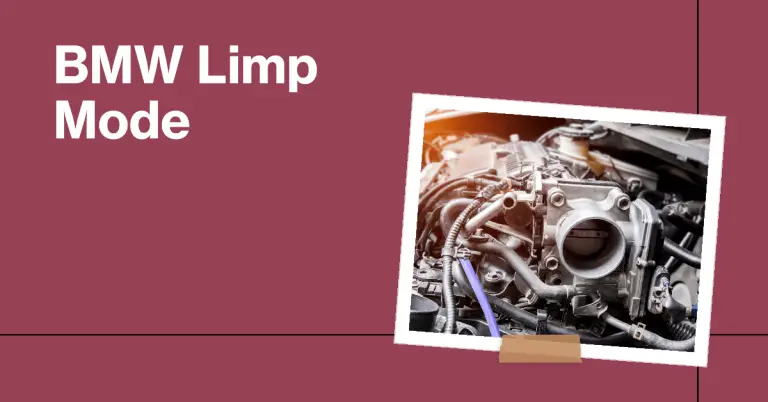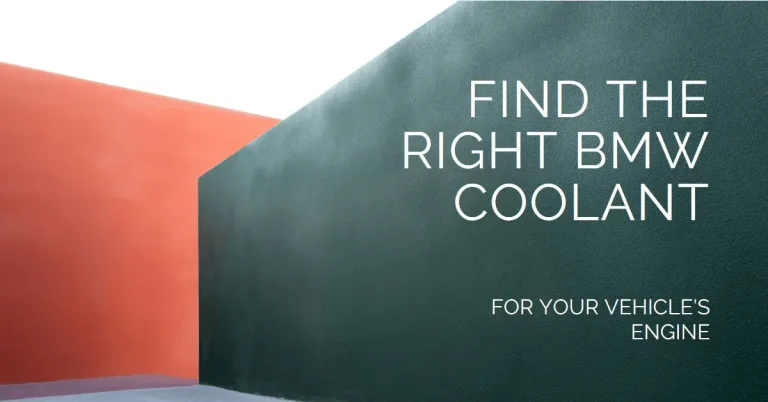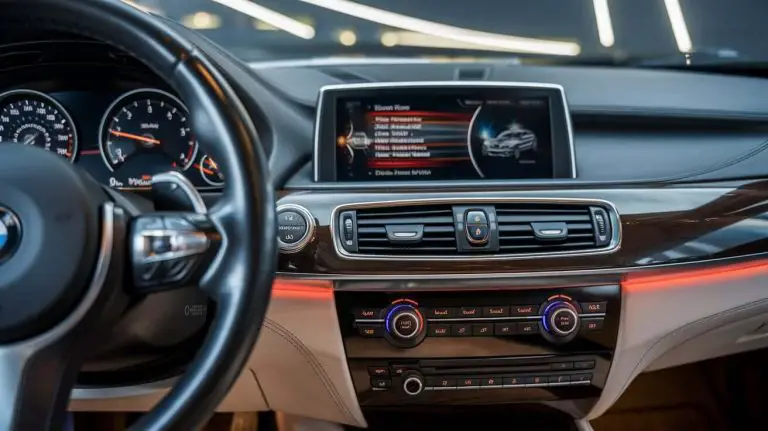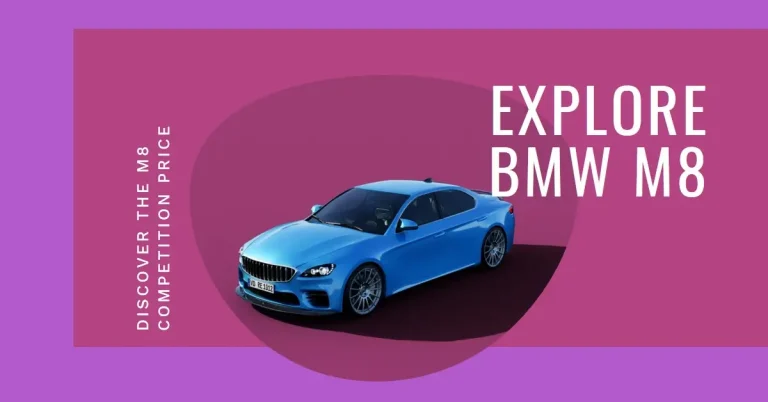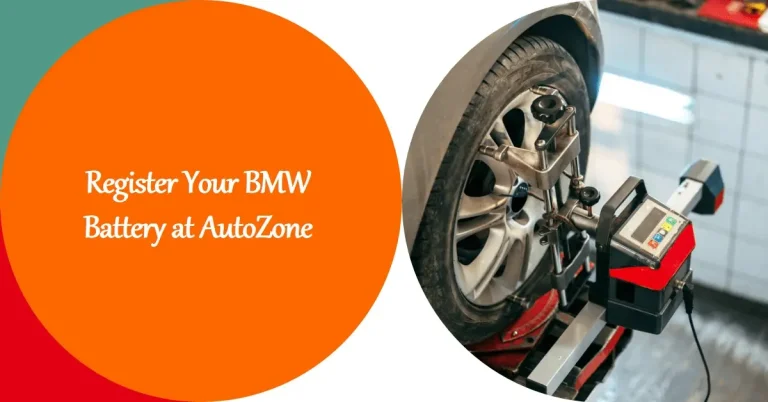Does BMW Make a Truck? Exploring the Possibilities
BMW is renowned worldwide for making luxury vehicles that offer exceptional driving performance and cutting-edge technology. Models like the popular X5 SUV and 3 Series sedan dominate the premium market. But does the reputable German automaker also produce something as utilitarian as a pickup truck?
Surprisingly, despite dabbling with truck concepts over the years, BMW has never mass-produced a pickup for public consumption. However, recent developments suggest they are reconsidering joining the lucrative truck segment.
A Brief History of BMW Experimenting With Pickup Trucks
Although they have no truck currently available, BMW is no stranger to truck experimentation:
- In the 1980s, BMW created a single E30 M3 pickup prototype that actually served as an internal shop vehicle at the German factory for over 25 years!
- In the early 2000s, the company produced another bespoke pickup conversion, this time based on the E92 M3 Coupe platform.
- There are limited details known about a mysterious 2011 BMW S65 V8-powered pickup that was slated for a marketing launch but never came to be.
- Most recently in 2019, BMW made headlines when a team of twelve automotive trainees built a stunning pickup concept based on the X7 luxury SUV. Featuring a sleek build with a teakwood bed lining, this highly practical show truck was unveiled at a BMW enthusiast event to much fanfare.
While these tantalizing one-off custom trucks have created plenty of buzz over the years, they never progressed to full-scale production runs available to the public.
Why Hasn’t BMW Produced a Pickup Truck Model?
BMW executives have provided two main reasons for not adding pickups to their vehicle portfolio:
1. Concerns Over Brand Identity
Trucks represent an image deviation from BMW’s primary identity as a luxury performance brand.
As BMW Head of Design Domagoj Dukec stated:
“It’s not an obvious fit for the BMW brand. We don’t have to go after every trend that is happening…What I do see and find interesting is that during COVID, we saw a trend for people who want to spend time outdoors.”
BMW caters to consumers looking for responsive handling and refined cabins. Producing a rugged utility truck tailored for hauling dirty cargo seems contradictory to their premium ethos.
2. High Development Costs
Designing and engineering trucks requires a specialized platform not currently available in BMW’s lineup.
The company would need to invest heavily to add complex new infrastructure, tooling, and manufacturing processes exclusively for a pickup line.
With questionable upside given their unconventional branding in the truck market, leadership has been hesitant to allocate resources to the initiative.
The Cautionary Tale of the Mercedes X-Class
BMW only has to look at rival Mercedes’ failed experiment with the luxury X-Class pickup truck for reasons to tread cautiously.
Hoping to capitalize on global appetite for upscale trucks, Mercedes launched the mid-size X-Class in 2017. However, the model was a heavy disappointment and cancelled by 2020.
There are several explanations for the X-Class pickup flop:
- Lack of Dedicated Engineering: Rather than an original platform, Mercedes opted for an OEM partnership with Nissan to modify and rebadge their existing NP300 Navara truck. This cost-saving shortcut resulted in lackluster driving quality unbefitting the Mercedes brand. Critics felt it neither handled impressively on-road nor capably off-road.
- Confusing Brand Messaging: Caught between work-ready ruggedness and luxury prestige, the mixed styling and positioning of the X-Class never resonated with buyers. At over €16,000 more than its Navara twin in Germany, the sticker shock further eroded appeal.
- Minimal Production Scalability: Another difficulty Mercedes encountered was that the niche market for premium truck buyers willing to spend lavishly on rugged workhorses was remarkably small globally. This significantly handcuffed production scale and profitability.
BMW seems keen to avoid replicating these missteps by resisting badge-engineered shortcuts and ensuring any pickup project has achievable target demographics.
Factors Driving Feasibility of a BMW Luxury Pickup
Although earlier skepticism has stifled BMW’s motivation to launch a pickup thus far, the market landscape shows promising signs.
As consumer preferences evolve for more refined trucks blurring work and leisure capabilities, BMW is taking notice. Other key trends bolstering the business case include:
- Mainstream Trucks Getting Premium Features: Top-trim models like the Ford F-150 Limited now encroach on luxury SUV pricing. Similarly, the electric F-150 Lightning Platinum and GMC’s carbon fiber Sierra suggest exceptional upmarket quality no longer exclusive to BMW/Mercedes. Closing this gap increases viability of an original luxury entrant.
- Strong US Demand: Trucks have long dominated American sales. With premium models rising in prominence and the US as BMW’s number one market, an elegant but sturdy BMW-engineered truck catered to discerning Americans could thrive.
- Higher-Margin Segment: Full-size trucks represent a lucrative profit pool compared to regular cars. If executed thoughtfully for its niche, a BMW pickup could deliver sustainably strong margins.
With stars aligning more favorably lately in the premium truck space, BMW seems newly open to reassessing assumptions.
What Could a BMW Pickup Look and Drive Like?
As pickup rumors swirl, fans have speculated extensively about what a production BMW truck could resemble.
Leveraging BMW’s strengths in balanced performance, comfort and safety, their pickup would likely differentiate itself through:
Refined Interior With Latest Tech
Following BMW’s well-appointed SUVs, expect a roomy, modern cabin with ergonomic seating for 5 passengers. The latest iDrive media system and advanced driver assistance features would also seem probable.
Responsive Handling and Acceleration
Traction and maneuverability credentials may satisfy work applications, but on-road manners matching BMW’s revered sports sedans feel essential too. Crisp steering, all-wheel-drive grip and a turbocharged inline-6 seem plausible for a pickup wearing the propeller badge.
Innovative Cargo Solutions
From a power-retractable tonneau cover to configurable bed storage and anchors, anticipate clever solutions facilitating cargo flexibility and security. The concepts have also showcased upscale wood or carbon fiber beds reflecting luxury style.
Rugged Towing Capacity
Substantial trailer tow rating (7,500+ lbs) and payload seems reasonable to contend with full-size American pickup competition while fulfilling job site expectations.
The Future: To Truck or Not To Truck?
BMW finally embracing the pickup possibilities comes with both risks and rewards.
While the segment shows burgeoning potential, major investments required for bespoke engineering and manufacturing setup could still deter full commitment.
More economical alternatives like platform sharing joint ventures could help mitigate development costs and build confidence before considering full in-house production.
Either way, with starving fans and Munich executives newly tempted by trucks, the door seems more open than ever for BMW to fill this lingering void in their lineup.
Conclusion: Reassessing Long-Held Truck Assumptions
Despite lacking a pickup offering for now, shifting consumer tastes and encouraging reaction to their truck concept explorations implies latent demand exists.
While in the past BMW felt their brand was incompatible with pickup utility vehicles, they appear to be reconsidering assumptions on whether a sophisticated, high-performance luxury truck model could succeed.
Continued buyer acceptance of premium features in mainstream trucks also bodes well should BMW decide to finally green light a versatile bespoke luxury pickup. Paired with their engineering talents, it could shake up the full-size truck establishment.
The path forward remains unclear, but never say never! BMW may yet surprise skeptics, just as they have repeatedly innovated new vehicle segments before.
What do you think – is BMW overdue to jump into the pickup ring or should they stick to their core luxury cars and SUVs? Share your thoughts below!

